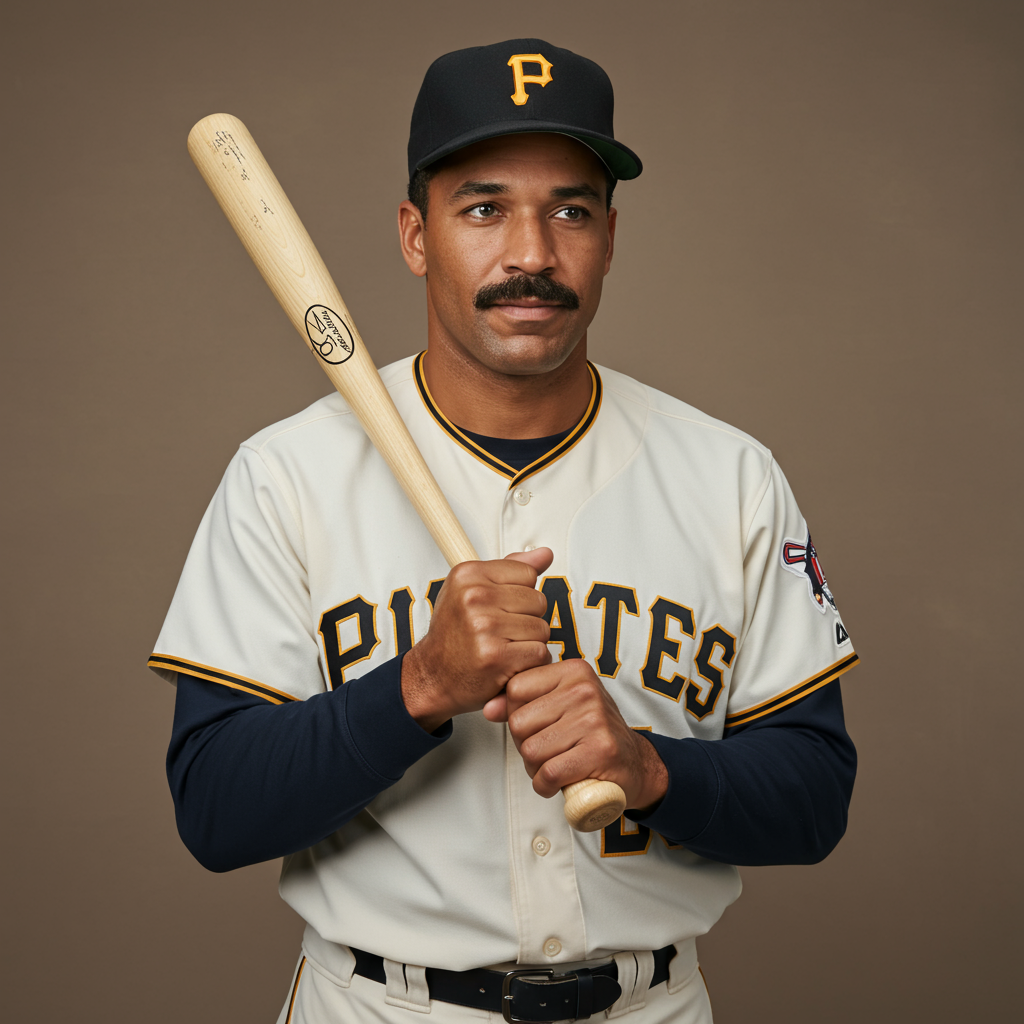The baseball world is mourning the loss of an iconic figure. Dave parker, the powerful outfielder known as “The Cobra,” a two-time World Series champion, seven-time All-Star, and recently elected Hall of Famer, has died at the age of 74. News of his passing was announced by the Pittsburgh pirates on Saturday, June 28, 2025, just weeks before he was set to be formally inducted into the National Baseball Hall of Fame in Cooperstown, New York.
Parker had been battling Parkinson’s disease since his diagnosis in 2012. While no immediate cause of death was provided, his long fight with the neurological disorder was widely known. The Pirates honored their legend with a moment of silence before their game against the New York Mets at PNC Park, informing the crowd of his passing.
A Look Back at “The Cobra’s” Legendary career
Born on June 9, 1951, in Mississippi and raised in Cincinnati, Dave Parker was a standout three-sport athlete in high school. A football injury ultimately steered his focus to baseball. He was drafted by the Pittsburgh Pirates in the 14th round of the 1970 MLB draft. Parker quickly ascended through the minor league ranks, making his major league debut with the Pirates in July 1973, following the tragic death of team icon Roberto Clemente.
Parker swiftly became a key player for Pittsburgh, inheriting the mantle of the team’s primary right fielder. Standing a towering 6-foot-5, his powerful physique and strong arm earned him the fitting nickname “The Cobra.” His presence on the field was undeniable.
Dominance on the Diamond
Parker’s prime years with the Pirates were marked by exceptional performance across the board. From 1977 to 1978, he captured back-to-back National League batting titles, hitting .338 and .334 respectively. In 1978, he was named the National League MVP, a testament to his all-around offensive prowess.
His defensive skills were equally impressive. A three-time Gold Glove winner in right field, Parker possessed one of the strongest arms in the game, frequently cutting down runners with accurate throws. Former Pirates manager Clint Hurdle once called him “the baddest dude in baseball” during his era, highlighting his ability to impact the game in multiple ways.
Two World Series Titles: Leading the Pirates and A’s
Dave Parker was a central figure on two World Series championship teams. He was a cornerstone of the charismatic 1979 Pittsburgh Pirates squad, famously known as the “We Are Fam-a-lee” team, that overcame a 3-1 deficit to defeat the Baltimore Orioles for the title.
A decade later, in 1989, Parker earned his second World Series ring, this time with the Oakland Athletics. Primarily serving as the designated hitter, he provided veteran leadership and offensive firepower to a lineup featuring younger stars like Jose Canseco and Mark McGwire. Parker hit a home run in Game 1 of the 1989 World Series, contributing to the A’s sweep of the San Francisco Giants.
Beyond Pittsburgh: Stints with the Reds and Other Teams
After 11 seasons in Pittsburgh, Parker signed with his hometown Cincinnati Reds in 1984 as a free agent. He spent four seasons with the Reds, enjoying a significant resurgence in 1985. That year, he led the National League with 125 RBIs and finished second in the MVP voting.
Parker also played for the Milwaukee Brewers, California Angels, and Toronto Blue Jays during his distinguished 19-season Major League Baseball career, which spanned from 1973 to 1991. He retired with career statistics including a .290 batting average, 2,712 hits, 339 home runs, and 1,493 RBIs. He also swiped 154 bases, demonstrating his early speed before evolving into a power hitter.
A Long and Difficult Path to Cooperstown
Despite his impressive statistics and numerous accolades, Dave Parker’s journey to the National Baseball Hall of Fame was a long and complicated one. He became eligible for the Baseball Writers’ Association of America (BBWAA) ballot years ago but never received the required 75% of the vote during his eligibility period.
However, his legacy was finally recognized in December 2024. Parker was elected to the Hall of Fame by the Classic Baseball Era Committee, a special panel dedicated to considering players whose primary impact was before 1980. This long-awaited election brought great joy to Parker and his family, though he openly admitted to shedding tears upon receiving the news, stating, “Yeah, I cried… It only took a few minutes, because I don’t cry.”
Facing Adversity Off the Field
Parker’s career was not without its challenges and controversies, which some observers believe contributed to the delay in his Hall of Fame induction. He was involved in the highly publicized Pittsburgh drug trials in the 1980s, where he testified under oath about his cocaine use. While he called this period the “one mistake” of his career, he continued to perform at a high level despite the pressure.
Furthermore, Parker faced significant fan backlash, particularly in Pittsburgh, after signing baseball’s first million-dollar-per-year contract in 1979 following his MVP season. This groundbreaking deal came in a less forgiving era of free agency and reportedly led to resentment and even racist hate mail. Parker famously kept these letters as motivation. During one infamous incident, a fan threw a battery at him while he was in right field. Despite these hardships, Parker continued to play hard and embody a confident, even swaggering, presence on the field.
A Lasting Legacy and Heartfelt Tributes
Upon hearing of Dave Parker’s death, tributes poured in from across Major League Baseball. Pirates chairman Bob Nutting described Parker as a “legendary Pirate” with a “big personality” whose passing left a “bigger void.” MLB Commissioner Rob Manfred called Parker a “gifted all-around player” and stated, “We will remember the Cobra forever.”
Hall of Fame Chairman Jane Forbes Clark noted that his election brought great joy and highlighted his legacy of “courage and leadership” matched by his accomplishments. Hall of Famer and former Reds teammate Barry Larkin recalled Parker as a physically imposing and impressively talented player. Pirates veteran Andrew McCutchen reflected that Parker “had to be like Superman to people” during his playing days due to his larger-than-life presence and personality.
Parker himself, a self-proclaimed “five-tool player,” never doubted his abilities and famously stated after his Hall selection, “I ran hard on every play.” His impact on the game, particularly as a dominant force in the late 1970s and 1980s, is undeniable.
Frequently Asked Questions
What were Dave Parker’s major accomplishments in MLB?
Dave Parker had a highly decorated 19-season MLB career. He was a seven-time All-Star, a two-time World Series champion (1979 Pirates, 1989 Athletics), and the 1978 National League MVP. He also won two NL batting titles (1977, 1978) and earned three Gold Glove awards for his defense in right field. He finished his career with impressive statistics including a .290 batting average, 2,712 hits, 339 home runs, and 1,493 RBIs.
Why was Dave Parker’s Hall of Fame induction delayed for so long?
Dave Parker’s path to the Hall of Fame was notably delayed despite his strong statistics. He did not receive enough votes from the Baseball Writers’ Association of America (BBWAA) during his initial eligibility period, with some observers citing controversies during his career, including his involvement in the 1980s drug trials and fan backlash over his large contract, as potential factors. He was eventually elected by the Classic Baseball Era Committee in December 2024, decades after his retirement.
When and where was Dave Parker scheduled to be inducted into the Baseball Hall of Fame?
Dave Parker was scheduled to be formally inducted into the National Baseball Hall of Fame on Sunday, July 27, 2025. The ceremony is held annually in Cooperstown, New York. Following his death on June 28, 2025, he will be inducted posthumously as part of the Class of 2025. Hall of Fame officials have confirmed they will honor him fully during the ceremony.
A Poignant Induction to Come
Dave Parker’s passing just weeks before his scheduled Hall of Fame induction adds a layer of profound sadness to his story. After a lengthy wait and a career marked by both brilliant performance and challenging moments, “The Cobra” finally received his well-deserved recognition. While he won’t be there to deliver his speech in person, his legacy as a dominant force, a two-time champion, and an undeniable Hall of Famer will be celebrated in Cooperstown and remembered by baseball fans forever.


